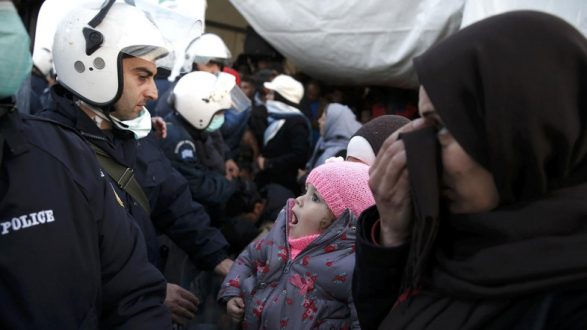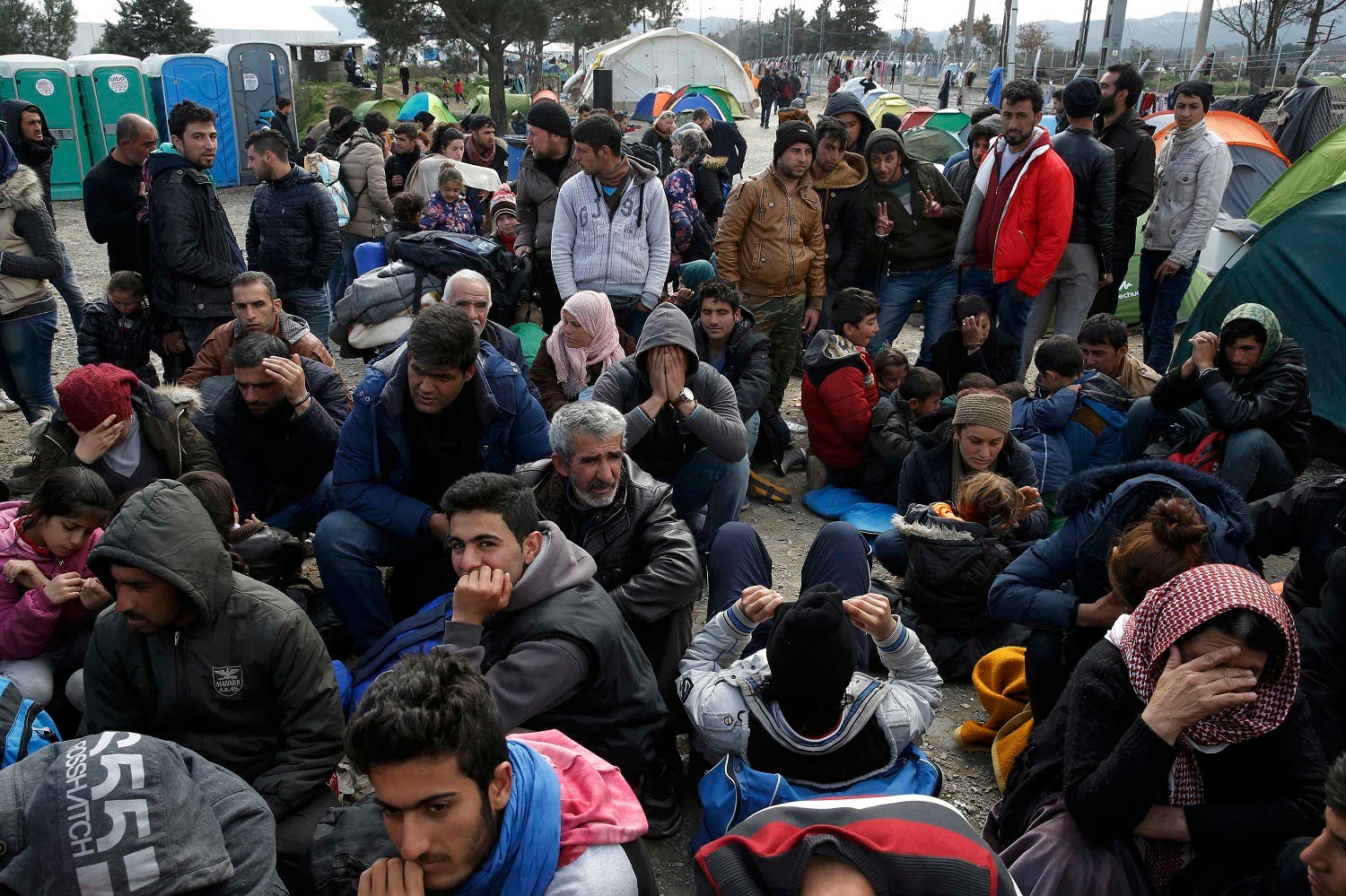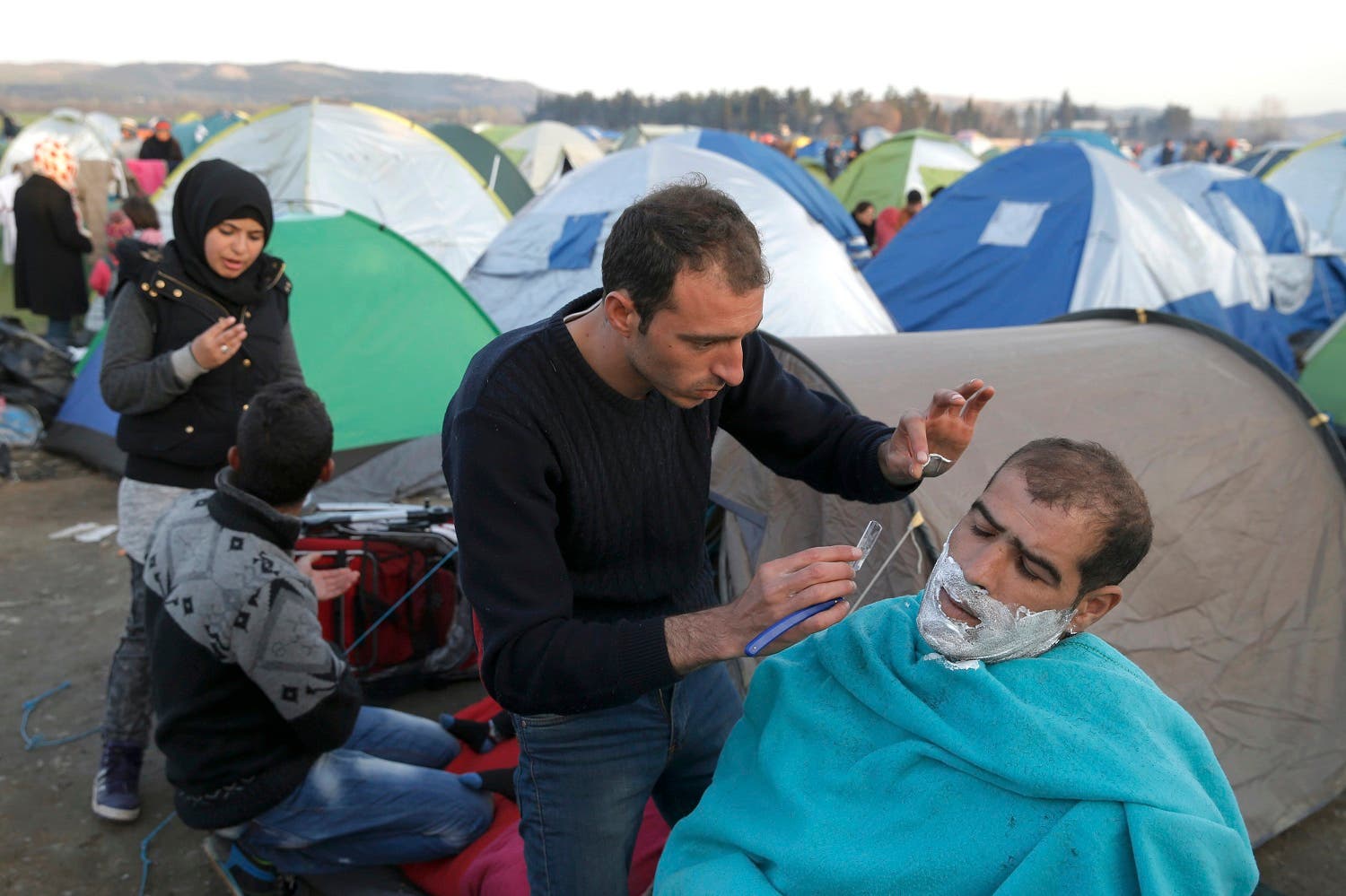
Greece prepares to help up to 150,000 stranded migrants
Greece conceded Wednesday it is making long-term preparations to help as many as 150,000 stranded migrants as international pressure on Balkan countries saw Macedonia open its border briefly for just a few hundred refugees.
 Migrants queue to receive travel papers near the Greek-Macedonian border, near the village of Idomeni, Greece March 2, 2016. (Reuters)
Migrants queue to receive travel papers near the Greek-Macedonian border, near the village of Idomeni, Greece March 2, 2016. (Reuters)

